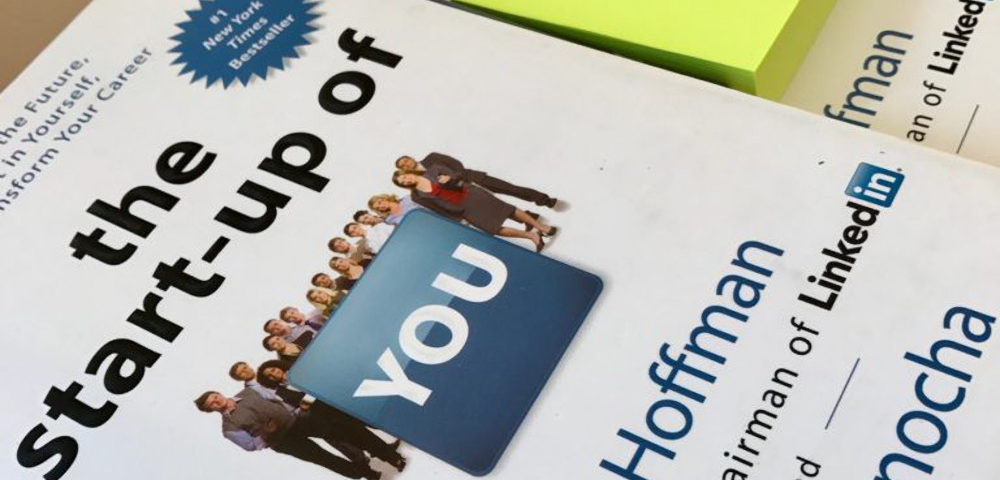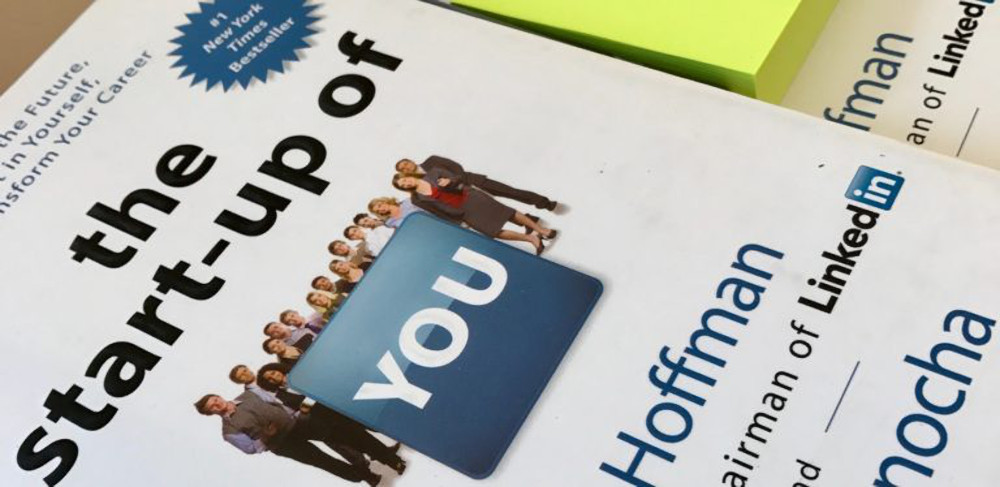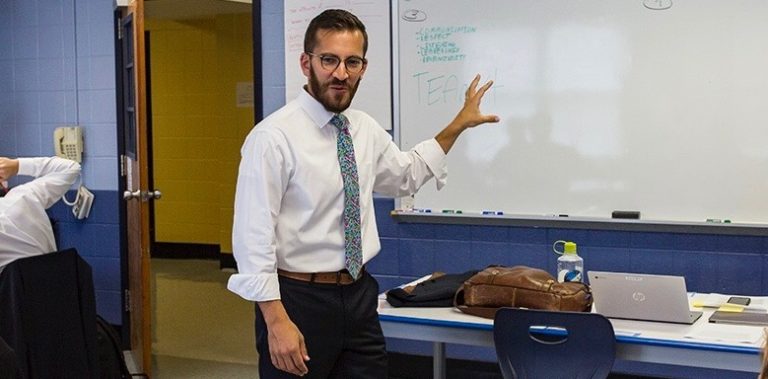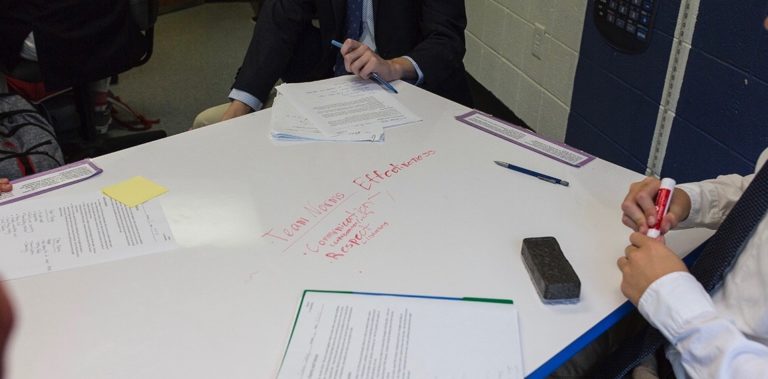Already a member? Log in to the Member Site at members.mastery.org.

Member Voices: Turning an Idea into a Movement
June 15, 2018
MTC Expands Membership to Public Schools
July 2, 2018Member Voices: Focusing on Growth


During January Term (“J-Term”), Kevin Moore, an educator in mathematics at MTC member school Malvern Preparatory School, facilitated “The Start-Up of You,” an innovative course he created to teach students about “treating themselves as a start-up, building a network, and investing in their futures.” Following he describes the experience, including the process of having students create their own “professional profile.”
Over the last several years, Malvern Preparatory School (Malvern, Penn.) has been the definition of continual growth. From the students, to faculty, to the Board of Trustees, Malvern Prep has adopted a growth mindset in an effort to create the best experience possible for all involved. One of the ways Malvern Prep formalized this growth is joining the Mastery Transcript Consortium. MTC, in developing an alternative model of crediting and transcript generation that will open up new opportunities for student learning, aligns seamlessly with Malvern Prep’s vision. As a result, we created conditions that allowed us to naturally pilot different forms of teaching and learning.
Creating Learner-Centered Experiences
At the beginning of January, Malvern Prep entered into its first ever January Term (“J-Term”) as a way for students to engage in learning experiences outside of traditional disciplines. All courses were designed by Malvern Prep faculty and staff and took place during two hour blocks for eight consecutive days with no letter grades attached to performance. Some courses included: “Robotics,” “The Study of People,” “Lifeguard Certification,” “Evolution and Application on Basketball Analytics,” “Mosaics at Malvern,” “Journo J-Term,” “Cooking and Culture,” and the list continues. Honestly, to name only two or three would truly do a disservice to the variety of options available to students. As for the course I designed and facilitated, “The Start-up of You,” the students and I truly lived a parallel mindset to Malvern’s focus on identity and looking to future opportunity.
At this time last year, I picked up Reid Hoffman’s book, The Start-up of You as part of an assignment for an online course. After completing it, a colleague of mine, Pam Whitney, and I immediately said this book would be extremely valuable for students. Perhaps it was serendipity, but this was the same time Malvern Prep announced the execution of our first J-Term. This was perfect timing to pilot a course for students to raise awareness for the importance of treating themselves as a start-up, building a network, and investing in their futures. As a result, my course “The Start-up of You” was born; however, the challenge of creating learner-centered experiences still needed to be addressed. As a mathematics teacher for the last six years, that challenge pushed me out of my comfort zone and live with an entrepreneurial mindset. With that, I asked myself, “How might 'The Start-up of You' come alive during Malvern Prep’s J-Term?”
“The Start-up of You” was built on personalized exercises and connecting with experienced entrepreneurial professionals. The combination of the two made for a recipe that tapped internal and external learning for students (and for me!).
In the evening, students read specific sections of Hoffman’s The Start-Up of You that foreshadowed their experiences the next day in class. Those activities included drawing out on giant, poster-sized, post-its their soft assets, skills, aspirations, market realities, and roadmaps to match their plans. Rather than just focusing on what they wanted to do in the future, students truly focused on how they will accomplish their professional dreams. Understanding each of their strengths became a cornerstone for creating that roadmap. Reflections made clear that students found significant value in taking marker to paper and sketching out their journey rather than simply sharing in a large group. To ensure we developed strong effective and efficient communication skills, students presented each of their exercises on a one minute time limit. The time limitation was new to students; however, they loved the challenge of captivating their audience under the pressure of time. These activities created a level of self-awareness and confidence, which truly helped the external learning experiences during the course.

Going Beyond the Classroom
As I thought about building authentic experiences that would challenge students, provide conditions for learning, and opportunities to demonstrate evidence of that learning, I realized this would need to go beyond the classroom. Our class expanded to Philadelphia, Alabama, California, Spain, and Dubai as I asked seven individuals, whose professional stories amplify entrepreneurial spirit, to join our class for a 30-minute student led interview through Zoom video conferencing. Those individuals included (in order of interviews):
- Mr. Nicholas Palumbo, Senior at the University of Alabama, Intern at Matchpoint Consulting Group
- Mrs. Barbara Orr, Executive Vice-President and Co-Owner, Poretta & Orr, Inc.
- Mr. Dave Spadaro, Eagles Insider, Philadelphia Eagles
- Mr. Navin Valrani, CEO of the Al Shirawi Group and The Arcadia Preparatory School
- Mr. Viktor Venson, Co-Founder of Signals, Senior Advisor at Hundred Years Design Consultancy
- Dr. Gad Allon, Director of the Jerome Fisher Program of Management & Technology at the Wharton School of Business at the University of Pennsylvania
- Mrs. Kellie Ajjan, SVP of HR at Balfour Beatty Investments

As students learned about each individual through preliminary research, they curated essential questions that allowed for each guest to share stories of growth and challenge, field related content, advice, etc. In addition, students learned professional norms of joining meetings five minutes earlier, dressing professionally, introductions, and closing summaries. Further, students experienced what it truly meant to engage in real-time decision making during each call. We focused on effective listening during each call by structuring thoughts in three buckets. Each statement may start with, “I hear…, I think…, or I wonder…” By creating a common framework, students were able to capture each conversation and create mental models for the wisdom shared. Overall, students commented this was the most valuable experience of the entire course. For example, when asked in an anonymous survey about their most memorable moment, one student wrote, “The calls as it gave me the most knowledge that no book or lecture could offer.” Another student commented, “Conducting my own interview.”
On one of the last days of the course, students’ appreciation and excitement for each call became evident through their willingness to go above and beyond. As snow billowed into the area, Malvern Prep issued a two-hour delay resulting in our class starting at 10:40 a.m. instead of 9 a.m. Our call that morning with Dr. Allon was scheduled for 9 a.m. and the students collectively agreed to join the call from their homes. Each student signed into the call early and professionally dressed. Yes! This actually happened! Students joined class outside of school hours! When asked, some students felt obligated to join; however, a number of students stated a genuine interest in being part of the experience. This specific instance demonstrates possibilities within education when providing concrete learning activities that allow students to feel part of something larger than themselves.
As our class came to a close, it began time to take what they learned and build the next step in their professional journey. Students built their first LinkedIn profile using the language learned in Hoffman’s, The Start-up of You and advice offered by each of our guests. The excitement and hunger to create their LinkedIn was astonishing. Students reflected on the heightened accountability of the assignment as it would be made public, which reinforces MTC’s vision for authentic assessment of skills, knowledge, and habits of mind. Throughout this assignment, we also spoke at significant lengths about leaving a professional digital footprint. This conversation presented a level of seriousness as students offered suggestions on how to keep a professional profile. This is yet another story of evidence demonstrating student growth and understanding throughout their eight days of the course.
Change as Opportunity
Change can be difficult; however, it is imperative to grow. If we can approach change as opportunity, then we are embodying the wisdom shared by Mr. Navin Valrani from 20+ years experience as the CEO of the Al Shirawi Group and CEO of The Arcadia Preparatory School. As an institution, Malvern Prep tackled change head on to create space in the schedule for experiences that foster curiosity and a love of learning. From institution, to faculty, to students, the entire J-Term required change, adaptability, and an opportunity mindset. As Malvern Prep forged ahead in executing the first J-Term, they also lived out Mrs. Barbara Orr’s experience from 30+ years as Executive Vice-President and Co-owner of Poretta & Orr, Inc. to believe in your plan and give 100%.
For me, change was incredibly real as I’ve taught traditional math standards for the last six years. “The Start-up of You” was a chance to challenge myself to develop a curriculum and experience that was authentic and left students curious. As Mr. Viktor Venson shared in his interview, “ideas are easy, executing is hard…and it is all about executing” and many times, I felt the pressure of executing. Yes, executing was hard until it truly began a team effort led by students. About half way through the course, the students took the mission and framework of the course and completely ran with each experience. The initiative and level of work demonstrated exceeded any expectations imagined. They too, like Malvern Prep, began to focus on everything in the form of an opportunity.
As society evolves, education needs to evolve. We are able to live this out at Malvern while in partnership with the Mastery Transcript Consortium. Further, through MTC building a network of schools focused on redefining assessment, Malvern is able to learn with others throughout this journey. We need to continue creating experiences for students that promote internal feelings of growth and curiosity, content that blends relevancy and future needs, and connections among individuals outside of the classroom for public demonstrations of learning. With that, we have a responsibility to craft avenues for growth from an institutional, faculty and staff, and student lens. When we achieve that point of view and opportunity presents a journey worth taking, how will you–how will we–respond?




